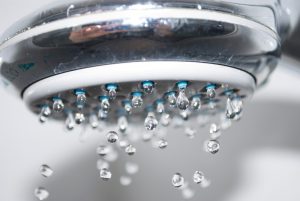 We’re experienced with water heater repair in Staten Island, NY as well as taking the next big step: installing new water heaters when old ones fail. Our team knows all about the standard storage tank water heater; that’s the most common type of unit in the area. But they’re also familiar with the newer tankless water heaters, which are growing in popularity each year.
We’re experienced with water heater repair in Staten Island, NY as well as taking the next big step: installing new water heaters when old ones fail. Our team knows all about the standard storage tank water heater; that’s the most common type of unit in the area. But they’re also familiar with the newer tankless water heaters, which are growing in popularity each year.
Are you hesitant about making the switch to tankless? It’s true not all homes and budgets are a good match for a tankless system. But many are. Because of numerous misunderstandings about tankless water heaters, some homeowner back away from what might be their best choice for a new water heater. We’d like to address some of these myths about tankless systems so you can have a clearer idea about your water heater installation decisions.
“Tankless water heaters cost too much to run”
This is one of those myths where the truth is the exact opposite. One of the most appealing aspects of installing a tankless water heater is that it consumes less energy than a standard storage tank system. The conventional water heater loses energy to standby heat loss and has to replace it, regardless of whether there’s demand for hot water or not. A tankless system is an “on-demand” water heater that only heats up water when a tap turns on to request it. Going tankless means saving money.
“Tankless water heaters don’t supply continuous hot water”
This is a misunderstanding that a tankless water heater can’t keep up the heat supply, so cold water will at times interrupt the hot water flow. When a tap comes on, the heating elements in the water heater turn on and stay on until the demand for water stops. This means the water is always heated, no matter what.
“Tankless water heaters can’t keep up with regular demand”
This is true only if the water heater was poorly installed. If a professional sizes the water heater to match the home’s demand (temperature rise and flow rate), the system will be able to deliver as much hot water as the household needs. And it won’t run out of water, it will always heat up more! The only concern with tankless systems is when too many taps are on at once demanding hot water, which can overflow the water heater. But this is something the installation expert will take into account.
“Tankless water heaters are potential scalding hazards”
You can adjust a tankless water heater’s temperature to fit your personal needs—and this has led some people to believe the water heater may raise the temperature too high, creating a scalding danger. However, storage tank water heaters can also have their temperatures adjusted. As long as you don’t set the water temperature higher than 140°F, a tankless water heater won’t present any dangers.
We recommend considering going tankless for your next installation: you can save on heating bills, enjoy continuous hot water, and get a longer service life from the system. Talk to our water heater professionals for more details.

